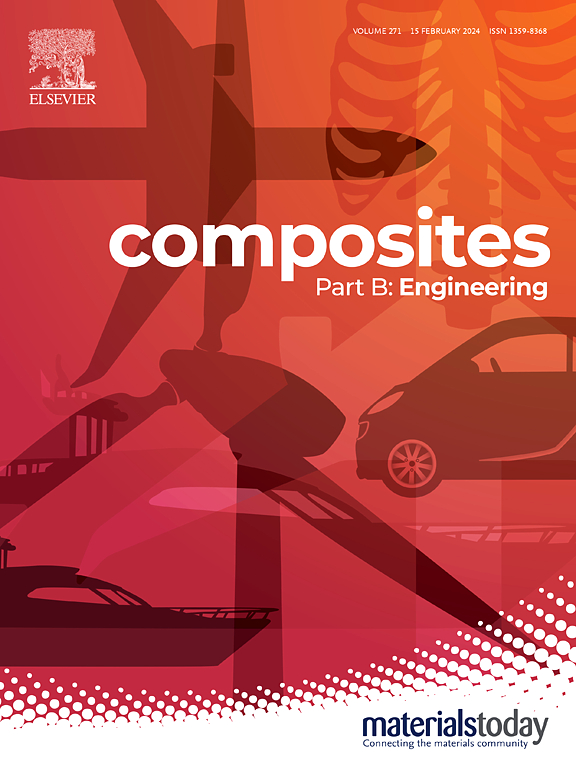无药物细胞外囊泡:用于肩袖再生中骨生成和抗炎龛的时空控制释放工程策略
IF 14.2
1区 材料科学
Q1 ENGINEERING, MULTIDISCIPLINARY
引用次数: 0
摘要
天然小分子药物在促进各领域的组织再生方面具有广阔的前景。因此,在最大限度地提高药物效率的同时减少潜在的副作用势在必行。从天然鱼腥草中提取的天然产物 Peiminine 具有良好的促骨和抗炎能力,是骨再生领域的小分子药物之一。然而,由于缺乏生物活性、高浓度时生物相容性差、难以实现长期缓释和治疗效果等原因,其应用受到了限制。由预处理细胞产生的细胞外囊泡 (EVs) 被认为具有特殊的生物功能,其进一步保留、缓冲和传递药物作用并扩大治疗效果的潜力已被广泛研究。因此,我们的研究提供了一种无药生物工程策略,即用培微宁预处理骨髓间充质干细胞(BMSC),然后提取其分泌的 EVs(即培微宁-EVs),并将其与脱细胞细胞外基质(dECM)相结合。最终形成了具有时空控制释放系统的 EVs-dECM 系统。体外研究表明,Peim-EVs 解决了 Peiminine 的生物相容性问题,并具有成骨和抗炎作用,这些作用可能与 PI3K/AKT、MAPK/NF-κB 和 Hippo 信号通路有关。大鼠体内肩袖损伤模型也表明,EVs-dECM 对肩袖修复有良好效果。结合工程策略,该研究为药物应用,尤其是保留药物生物效应的无药策略提供了验证和场景拓展,具有广泛的意义。本文章由计算机程序翻译,如有差异,请以英文原文为准。
Drug-free extracellular vesicles: A spatiotemporally controlled release engineering strategy for osteogenesis and anti-inflammatory niches in rotator cuff regeneration
Natural small-molecule drugs have promising potential to promote tissue regeneration in various fields. Therefore, maximizing drug efficiency while minimizing potential side effects is imperative. Peiminine, a natural product extracted from natural Fritillaria, is one of small-molecule drugs in the field of bone regeneration due to its good bone-promoting and anti-inflammatory abilities. However, its application is limited by a lack of biological activity, poor biocompatibility at high concentrations, and difficulty in achieving long-term slow-release and therapeutic effects. Extracellular vesicles (EVs) produced by preconditioned cells are considered to have special biological functions, and their potential to further retain, buffer, and transmit drug effects and expand the therapeutic effect has been widely studied. Thus, our study provides a drug-free bioengineering strategy by preconditioning bone marrow mesenchymal stem cells (BMSC) with Peiminine, then EVs, secreted as Peim-EVs, were extracted and combined with a decellularized extracellular matrix (dECM). The final EVs-dECM system with a spatiotemporally controlled release system was formed. In vitro studies demonstrated that Peim-EVs solved the problem of Peiminine biocompatibility and exhibited osteogenic and anti-inflammatory effects, which may be related to PI3K/AKT, MAPK/NF-κB, and Hippo signaling pathways. An in vivo model of rotator cuff injury in rats also showed that EVs-dECM had a good effect on rotator cuff repair. Combined with engineering strategy, this study provides verification and scenario expansion for drug application, especially for drug-free strategies that retain the biological effects of drugs, and has broad significance.
求助全文
通过发布文献求助,成功后即可免费获取论文全文。
去求助
来源期刊

Composites Part B: Engineering
工程技术-材料科学:复合
CiteScore
24.40
自引率
11.50%
发文量
784
审稿时长
21 days
期刊介绍:
Composites Part B: Engineering is a journal that publishes impactful research of high quality on composite materials. This research is supported by fundamental mechanics and materials science and engineering approaches. The targeted research can cover a wide range of length scales, ranging from nano to micro and meso, and even to the full product and structure level. The journal specifically focuses on engineering applications that involve high performance composites. These applications can range from low volume and high cost to high volume and low cost composite development.
The main goal of the journal is to provide a platform for the prompt publication of original and high quality research. The emphasis is on design, development, modeling, validation, and manufacturing of engineering details and concepts. The journal welcomes both basic research papers and proposals for review articles. Authors are encouraged to address challenges across various application areas. These areas include, but are not limited to, aerospace, automotive, and other surface transportation. The journal also covers energy-related applications, with a focus on renewable energy. Other application areas include infrastructure, off-shore and maritime projects, health care technology, and recreational products.
 求助内容:
求助内容: 应助结果提醒方式:
应助结果提醒方式:


